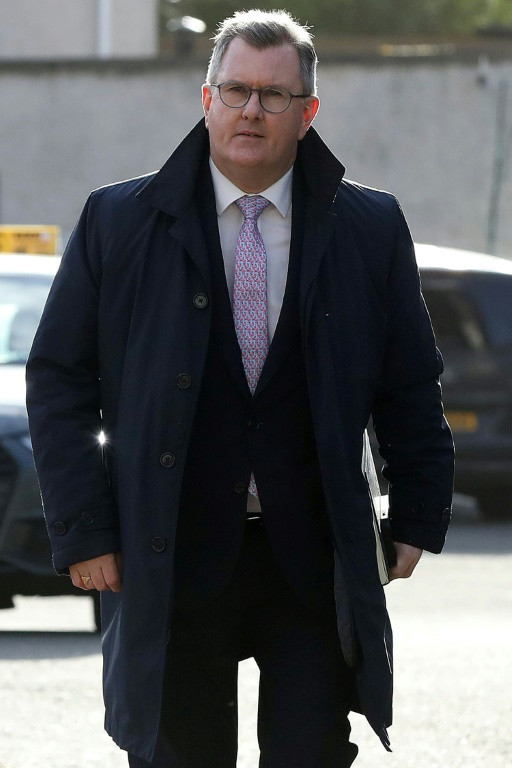Irish PM cautious about deal to restore N.Ireland govt
The EU wants to prevent unchecked goods from England, Scotland and Wales entering its single market by the back door via EU member state Ireland.

Irish premier Leo Varadkar on Thursday played down hopes of a swift end to wrangling over post-Brexit trading rules in Northern Ireland that has caused lengthy political paralysis in Belfast.
On a visit to the British province, he said he was optimistic about ironing out disagreements about the Northern Ireland Protocol that prompted pro-UK parties to walk out of the assembly last year.
Varadkar said he was "hopeful" of an agreement that would lead to the resumption of the power-sharing executive, after meeting political leaders for closed-door talks at a hotel in Belfast.
But he warned that agreement on the protocol, which keeps Northern Ireland in the European single market and customs union, still may not be enough for the assembly to get back up and running.
"It's not a given that one follows the other," he told reporters, also downplaying talk that a deal was near in the long-running saga, which has strained ties between the UK and the EU.
"We're not in the proverbial tunnel yet," he said.
Varadkar, who returned as premier in December under a rotation deal agreed by the coalition government in Dublin, described the talks as "very constructive", without going into detail.
Hopes have been raised of an end to the row after London and Brussels this week said they had agreed a customs data-sharing deal on goods heading to Northern Ireland from mainland Great Britain.
There has been a flurry of high-ranking political visits in the British province this week, as a January 19 deadline approaches for the devolved assembly to return -- or face new elections.
Northern Ireland marks the 25th anniversary on April 10 of the 1998 Good Friday Agreement, which ended three decades of sectarian violence over British rule.
Varadkar refused to commit to a timescale for a deal or say it could be done by that date but said all parties wanted to avoid "an unnecessary election".
"It wouldn't serve any purpose. I don't honestly in my heart believe that the election result would be very different," he added.
Northern Ireland, set up as a pro-UK, Protestant enclave when Ireland cast off British rule just over a century ago, last year saw pro-Irish nationalist party Sinn Fein win the most seats at the assembly for the first time.
Power-sharing between nationalists and unionists is at the heart of the Good Friday Agreement, as is an open border with Ireland, which has complicated trade after Brexit.
The EU wants to prevent unchecked goods from England, Scotland and Wales entering its single market by the back door via member state Ireland.
But pro-UK parties believe the protocol Britain signed with the EU drives a wedge between Northern Ireland and the rest of the country, making a united Ireland more likely.
Democratic Unionist Party leader Jeffrey Donaldson has also played down hopes of an agreement. "I don't think we are anywhere close to a deal," he told BBC radio.
"At the moment, while some progress has been made on some technical issues, there are major political issues in those negotiations that have not yet been addressed," Donaldson said.
Varadkar acknowledged "mistakes" have been made and that its implementation was "too strict", adding that he wanted a low number of checks.
A potentially pivotal meeting is scheduled for next Monday between the UK and EU sides.

© Copyright AFP 2025. All rights reserved.





















